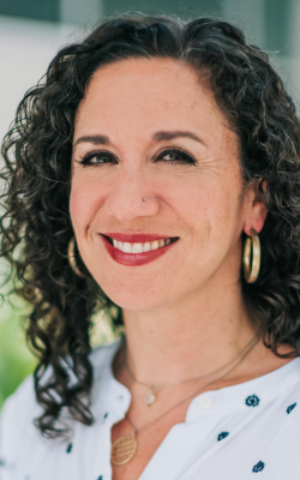HAMSA Looks Back
The COVID crisis led to increased need for services to help those struggling with substance abuse.
Looking back on 2020
I began 2020 with a long list of goals and objectives for the HAMSA (Helping Atlantans Manage Substance Abuse) program, thinking that by the end of the year I would be reflecting on the great work we did through events and programming. It never occurred to me that I would spend the year hoarding toilet paper and learning about infectious diseases, nor could I have imagined that I would be writing this from my kitchen table, where I’ve been stationed – often surrounded by children – since March 16.
In a lot of ways, COVID brought us together; everyone was going through something for the first time – and none of us knew what to expect. There’s a comfort in knowing you’re not alone in your experiences, especially when there is so much fear anduncertainty; we naturally lean into human connections when we seek safety and comfort.
But connection is hard to find when you are isolated at home. For those who live with addiction and mental illness, connection through relationships, peer support, treatment, counseling, etc. is the source of our strength … but isolation is our kryptonite. Our clients were faced with daunting new challenges, while HAMSA – and every other program that supports people seeking recovery – was forced to pivot.
HAMSA’s role evolves
The response to the lockdown was immediate; there really wasn’t much time to think – there was only time to act. Within 24 hours, our small team (consisting of myself and Information and Referral Specialist Michelle Day) rallied and was compiling lists of crisis lines and locations that were still seeing clients face to face. We called every client to check in and see how we could help. We reached out to local crisis centers to find out about new admissions protocols and restrictions. We started a weekly newsletter to keep people informed and connected to us.
Knowing that the fear, uncertainty, financial hardships and isolation would likely lead to an increased need for HAMSA’s services, we mobilized with an array of resources and a new perspective on how we could reach people.

The pandemic’s impact on addiction and mental illness
We began to see the impact of the pandemic on people with addiction and mental illness almost immediately. People who had completed several months in residential treatment returned to a world they didn’t recognize, one where they couldn’t attend peer support meetings or go to outpatient treatment – the things they were told to do upon discharge.
People for whom 12-step meetings were a lifeline suddenly didn’t have them anymore. Therapists were only via telehealth, and crisis stabilization units had limited capacity as they navigated finding PPE [personal protective equipment] and developing best practices, and the capacity they did have was full. People were losing their jobs, losing their insurance, and losing connection. It took a toll.
Overdoses and hospital visits for drug and alcohol or mental illness related causes have sharply increased; the recovery community has suffered many losses, with many relapsing and tragically losing their lives. We didn’t need to be scientists to see that the fallout from the pandemic was an addiction and mental illness epidemic. But we were prepared.
How HAMSA has helped
It’s no surprise that the pandemic has resulted in an increasing need for treatment resources for addiction and mental illness, and a 58.5 percent increase in calls over 2019 demonstrates that need.
With overdoses on the rise, we started doing online programs to increase awareness about the hidden dangers of drug use, and Narcan trainings to educate about opioid overdoses and how to save a life. We even dropped off Narcan kits and did socially distant trainings in people’s driveways.
Atlanta enjoys a unique collection of Jewish organizations that address mental illness and recovery or offer support to those seeking treatment. Just as no one can recover alone, we can’t do this work by ourselves; but through collaboration and partnership, we can be even more successful.
We joined Rabbi [Eliyahu] Schusterman at Jeff’s Place as co-facilitators for a virtual 12-Step Torah Study and formed two new addiction-specific therapy groups in our Jewish Family & Career Services’ clinical department. JIFLA [Jewish Interest Free Loan of Atlanta] made treatment more accessible through their interest-free loan program, and SOJOURN [Southern Jewish Resource Network for Gender and Sexual Diversity] helped us connect transgender and gender diverse clients with grant-funded treatment. We brought award-winning author David Sheff to our community via Zoom for an intimate conversation about addiction and families, and organizations like The Blue Dove Foundation and many others supported the event. When more than 500 people registered for the event, we knew it was a topic people wanted to hear about.
We worked closely with our trusted professional network through our Information and Referral service to ensure clients had the right treatment options and understood new admissions policies.
By leaning on these partners – staying connected – we removed barriers so people had better access to treatment and a chance at recovery.
Looking forward
As we head into 2021 with a glimpse of the light at the end of the pandemic tunnel, we remain painfully aware that there are many who will continue to struggle and suffer long after the vaccine is distributed. Unfortunately, there is no vaccine for addiction. We will continue to evolve to meet our community’s needs as we move into a post-COVID world – and HAMSA will always be here to help. To learn more about HAMSA, visit hamsahelps.org or call 833-HAMSA-HELPS.
Leslie Lubell is HAMSA program manager. HAMSA is a program of Jewish Family & Career Services.
- Leslie Lubell
- Opinion
- Community
- Substance Abuse
- Mental Health
- JF&CS
- Counseling
- Family
- Michelle Day
- Therapy
- COVID
- COVID-19
- pandemic
- Jeff's Place
- Coronavirus
- The Blue Dove Foundation
- jewish interest free loan of atlanta
- Southern Jewish Resource Network for Gender and Sexual Diversity
- Zoom
- COVID Vaccine




comments